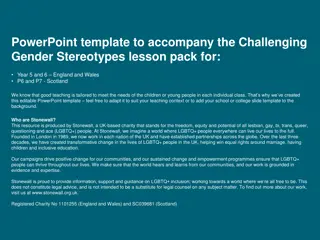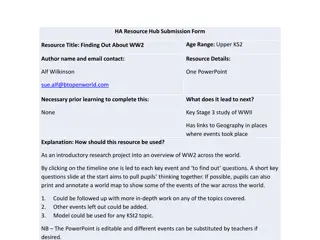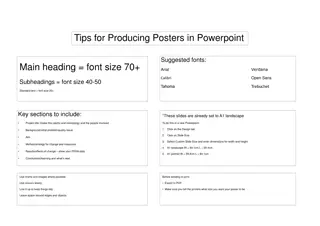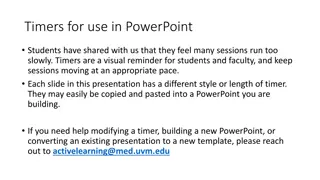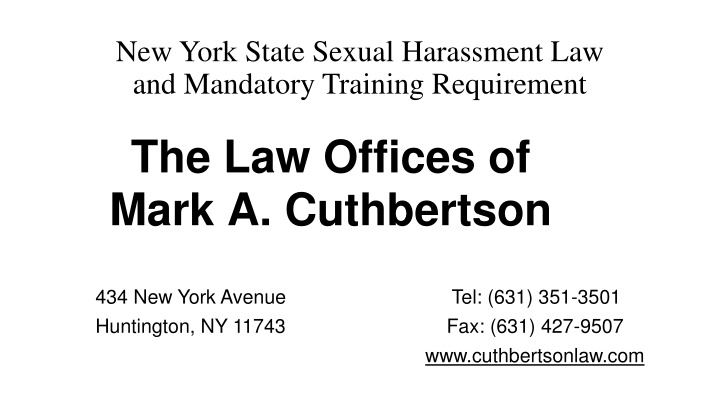
New York State Sexual Harassment Law & Training Requirements
"Learn about the key provisions of the New York State Sexual Harassment Law, including mandatory policy adoption, employee training, and prohibitions on arbitration and non-disclosure agreements. Stay compliant to avoid penalties and legal liabilities."
Download Presentation

Please find below an Image/Link to download the presentation.
The content on the website is provided AS IS for your information and personal use only. It may not be sold, licensed, or shared on other websites without obtaining consent from the author. If you encounter any issues during the download, it is possible that the publisher has removed the file from their server.
You are allowed to download the files provided on this website for personal or commercial use, subject to the condition that they are used lawfully. All files are the property of their respective owners.
The content on the website is provided AS IS for your information and personal use only. It may not be sold, licensed, or shared on other websites without obtaining consent from the author.
E N D
Presentation Transcript
New York State Sexual Harassment Law and Mandatory Training Requirement The Law Offices of Mark A. Cuthbertson 434 New York Avenue Huntington, NY 11743 www.cuthbertsonlaw.com Tel: (631) 351-3501 Fax: (631) 427-9507
New York State Sexual Harassment Law and Mandatory Training Requirement Overview On April 13, 2018, Governor Cuomo signed legislation that added new provisions to the New York State Human Rights Law that addressed sexual harassment in the workplace, public accommodations, educational institutions, etc. These provisions apply to all New York employers, including municipalities Several provisions of the new sexual harassment law have already taken effect. As such, it is critical to ensure your municipality complies with the law s requirements. Failing to comply with the law may result in penalties from the State Division of Human Rights in the near future, and expose employers to legal liability.
New York State Sexual Harassment Law and Mandatory Training Requirement Big Picture: What Did The Law Do? Required Employers To Adopt A Sexual Harassment Policy By October 9, 2018 That Met Certain Minimum Standards. Have you adopted a policy yet? Requires All Employees Receive Sexual Harassment Training by October 9, 2019 Prohibited Requiring Mandatory Arbitration for Sexual Harassment Claims Prohibited Non-Disclosure Agreements Without The Victim s Consent Prohibits Municipalities From Reimbursing Public Officials Or Employees For Sexual Harassment Judgments Issued Against Them Personally
New York State Sexual Harassment Law and Mandatory Training Requirement Big Picture: What Did The Law Do? Required Employers To Adopt A Sexual Harassment Policy By October 9, 2018 That Met Certain Minimum Standards. Have you adopted a policy yet? Requires All Employees Receive Sexual Harassment Training by October 9, 2019 Prohibited Requiring Mandatory Arbitration for Sexual Harassment Claims Prohibited Non-Disclosure Agreements Without The Victim s Consent Prohibits Municipalities From Reimbursing Public Officials Or Employees For Sexual Harassment Judgments Issued Against Them Personally
New York State Sexual Harassment Law and Mandatory Training Requirement Sexual Harassment Policy Overview As of October 9, 2018, all New York employers were required to have a written sexual harassment prevention policy and provide it to all employees The policy can be distributed in writing or electronically If given electronically, employees must be able to access the policy on a computer provided by the employer during work hours and print a copy for their records While the State does not require employers to obtain a signed acknowledgment from their employees, the practice is encouraged as evidence of compliance.
New York State Sexual Harassment Law and Mandatory Training Requirement Sexual Harassment Policy Mandatory Provisions Prohibit sexual harassment, provide a definition for same, and give examples of prohibited conduct that would constitute unlawful sexual harassment Clearly state that non-employees (contactors, interns, vendors, consultants, etc.), are also covered by the policy and are protected from sexual harassment Provide information about state and federal sexual harassment laws and the remedies available, and a statement that there may be applicable local laws Describe a procedure for the timely ( as soon as possible ) investigation of complaints and keep investigation-related documents in a confidential location
New York State Sexual Harassment Law and Mandatory Training Requirement Sexual Harassment Policy Mandatory Provisions Require that written investigation documents include the basis for the decision regarding the resolution of the complaint Inform employees of all available forums for adjudicating sexual harassment claims Clearly state that sexual harassment is a form of employee misconduct and that sanctions will be enforced against individuals engaging in sexual harassment and supervisory and managerial personnel who knowingly allow such behavior; and Clearly state that retaliation against individuals who complain of sexual harassment or who testify or assist in any proceeding under the law is unlawful.
New York State Sexual Harassment Law and Mandatory Training Requirement Sexual Harassment Policy Broadening The Scope While some formulation of these provisions is mandatory in every policy, the law does not prohibit employers from including provisions that go beyond this baseline Common examples include a warning that false and malicious accusations may result in disciplinary action and policies about fraternization and employee dating In addition to the issue of sexual harassment, broader anti-harassment policies commonly include language about discrimination on the basis of race, gender, age, disability, religion, sexual orientation, or other protected classifications.
New York State Sexual Harassment Law and Mandatory Training Requirement Sexual Harassment Policy Complaint Form Employers are required to have a complaint form for employees to use when reporting incidents of sexual harassment While originally required to be a part of the policy itself, employers may now simply inform their employees of where the form is located (ex: company website) While the essential element of the form are dictated by the law and accompanying regulations, the State s model form provides strong guidance.
New York State Sexual Harassment Law and Mandatory Training Requirement Sexual Harassment Policy State Model Policy To help employers comply with the new law, the State has published a series of model documents, including a model policy, complaint form, and poster While these provide guidance, several provisions are vague, inconsistent with best practices, or conflict with other legal obligations. For example, the model policy references due process for all parties, but leaves the meaning vague, potentially creating unnecessary legal exposure Similarly, the model policy s anti-retaliation provision is overly broad, including acts that occur outside the context of work. This likely exceeds what the law provides. Finally, the model policy s investigative process falls short of best practices
New York State Sexual Harassment Law and Mandatory Training Requirement Sexual Harassment Policy The Faragher Defense Though employers are now required by law to have a sexual harassment policy, there are significant legal benefits to having and enforcing such a policy. A Faragher defense to a Title VII hostile working environment claim requires showing that (1) the employer exercised reasonable care to prevent and promptly correct the harassing behavior, and (2) the plaintiff unreasonably failed to take advantage of preventative or corrective opportunities provided by the employer. Faragher v. City of Boca Raton, 524 U.S. 775 (1998). Having a robust sexual harassment policy with strong reporting and investigation procedures can establish both that the employer did not condone the harassment, and that it had a process for remedial action, thus avoiding employer liability. See Faragher, supra; Burlington Industries, Inc. v. Ellerth, 524 U.S. 742 (1998).
New York State Sexual Harassment Law and Mandatory Training Requirement Sexual Harassment Training - Overview By October 9, 2019, employers are required to ensure that all employees, including full-time, part-time, seasonal, and temporary employees, have received sexual harassment training. Additional training must be provided annually thereafter. Employees who start their employment after October 9, 2019 must complete their sexual harassment training as soon as possible after their start date. If an employee fails or refuses to undergo sexual harassment training, employers are empowered to use administrative remedies to ensure compliance.
New York State Sexual Harassment Law and Mandatory Training Requirement Sexual Harassment Training Content The training program can consist of a model program developed by the State or comparable training that meets the same minimum standards Training must be specific to the policies and practices of each employer. As such, an employee s training from a prior employer will only suffice if both employers use the same unmodified state training, or provided training from a shared source (e.g., a training program provided by a shared union). The training program must be interactive, i.e. it must allow for some type of employee participation. This can be satisfied by several forms of training
New York State Sexual Harassment Law and Mandatory Training Requirement Sexual Harassment Training Forms of Training Online training programs that ask employees questions (note: employees must be recorded as answering the questions correctly) Online programs that allow employees to submit questions about the training and receive a timely response Have a live trainer (either in-person, by phone or video conference) present to answer employee s questions about the training Requiring feedback from employees about the training and materials provided
New York State Sexual Harassment Law and Mandatory Training Requirement Sexual Harassment Training State Model Training Like the model policy, the State s model training leaves much to be desired Several provisions exceed what the law actually requires of employers, and instead provides more stringent provisions that are strongly recommended by the State Another issue is the case studies, which aside from not being tailored to your operations, include examples that are irrelevant or perpetuate sexist stereotypes The model training also describes an inflexible process that may deter reporting Finally, the model training is boring, and unlike this talk, fails to engage listeners
New York State Sexual Harassment Law and Mandatory Training Requirement Sexual Harassment Training Additional Information While not required, employers are advised to provide separately train supervisors and managers to address the added responsibility for individuals in those roles There is no minimum number of training hours per year or per training session Failure to comply with the training requirement may result in penalties from the New York State Division of Human Rights, and may expose employers to liability for acts of harassment and failing to adequately train their employees. While live training is not required, it is considered to be a best practice. It also provides an opportunity to more comprehensively address workplace conduct
New York State Sexual Harassment Law and Mandatory Training Requirement Sexual Harassment Training An Opportunity For More Live training is an opportunity for employers to give comprehensive training on other forms of illegal discrimination (race, gender, age, sexual orientation, etc.) Live training can also address discrimination on the basis of disability or religious beliefs, particularly the requirement to provide reasonable accommodations Finally, live training helps impart the seriousness of proper workplace conduct Remember: even if less comprehensive training will prevent legal liability, claims of sexual harassment or discrimination can still be extremely damaging from a PR perspective. In short, extra training now can prevent major headaches later.
New York State Sexual Harassment Law and Mandatory Training Requirement Mandatory Arbitration As of July 11, 2018, the law prohibited all new contracts from including mandatory arbitration clauses for sexual harassment claims. However, there is no similar prohibition on requiring employees to submit to mandatory arbitration for other types of claims. Notably, the law provides that if there is a conflict between the sexual harassment law and the terms of a collective bargaining agreement, the terms of the collective bargaining agreement will be controlling.
New York State Sexual Harassment Law and Mandatory Training Requirement Non-Disclosure Agreements As of July 11, 2018, employers are prohibited from including or agreeing to terms in any resolution of a claim involving sexual harassment that would prevent the complainant from disclosing the underlying facts and circumstances, unless the complainant indicates a preference for such a non-disclosure provision. The law provides a detailed procedure for establishing a complainant s preference, including allowing 21 days to consider the terms of any agreement and a one-week revocation period after the agreement is signed. Employers may still propose a non-disclosure clause, subject to the above process.
New York State Sexual Harassment Law and Mandatory Training Requirement Liability For Public Officials In Sexual Harassment Cases As of April 13, 2018, any individual elected, appointed, or employed by the State who has been subject to a final judgment of personal liability for intentional wrongdoing in a sexual harassment claim that resulted in an adjudicated award must reimburse any state agency or entity that made a payment to a plaintiff on the individual s behalf for his/her share of the judgment within 90 days. The law also has a similar provision for commissioners, members of public boards or commissions, trustees, directors, officers, employees, or any other person holding a position by election, appointment, or employment in a public entity.
New York State Sexual Harassment Law and Mandatory Training Requirement Proposed Program For SCVOA Members Sexual Harassment Training For Trustees That Complies With New Requirements Overview Of The Above And Other Employment Law Issues For Employees
New York State Sexual Harassment Law and Mandatory Training Requirement The Law Offices of Mark A. Cuthbertson 434 New York Avenue Huntington, NY 11743 www.cuthbertsonlaw.com Tel: (631) 351-3501 Fax: (631) 427-9507

